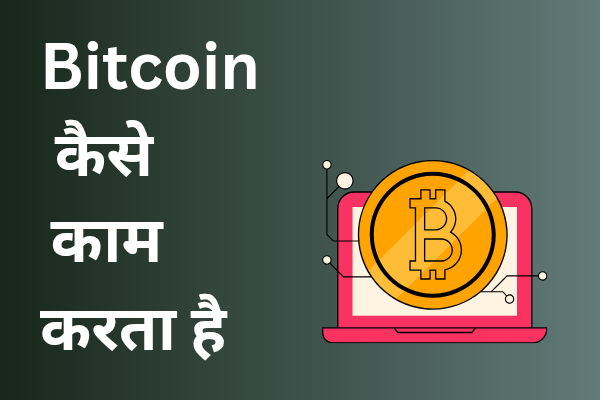The rise of cryptocurrency has disrupted the global financial landscape, and India is no exception. As digital currencies like Bitcoin and Ethereum gain popularity, one pressing question continues to dominate the minds of investors, entrepreneurs, and regulators alike “Is cryptocurrency legal in India?” This question is more relevant than ever in 2025, given the evolving nature of India’s regulatory stance on digital assets.
Is Cryptocurrency Legal in India as of 2025?
As of now in 2025, cryptocurrency is legal in India, but with regulations and restrictions in place.
Cryptocurrency is not banned in India
Contrary to previous fears and rumors, the Indian government has not banned cryptocurrency. It Using Indian-registerd exchanges to purchase, sell, keep, and trade cryptocurrencies like Bitcoin and Ethereum is allowed. However, crypto is not considered legal tender, meaning you cannot use it to pay for goods or services like you would with INR (Indian Rupee). The Reserve Bank of India (RBI) does not recognize cryptocurrencies as official currency or legal tender.
Cryptocurrency is regulated, not outlawed
India’s strategy has changed from contemplating a complete prohibition to enforcing regulatory supervision. The government introduced a framework through the Crypto Regulation and Digital Asset Bill, which categorizes cryptocurrencies as “Virtual Digital Assets (VDAs)”.
Key highlights of the current legal stance include:
- KYC compliance: All crypto exchanges must follow Know Your Customer norms strictly.
- Taxation: Crypto income is taxed at 30% with 1% TDS (Tax Deducted at Source) on every transaction.
- No set-off of losses: Losses from crypto cannot be set off against any other income.
So, while cryptocurrency is not banned, it is under strict regulatory scrutiny and is not freely usable like fiat currency.
History of Cryptocurrency Laws in India
To fully understand the present legal status, let’s walk through the timeline of crypto regulation in India:
1. 2013–2017: Early Days, Unregulated Growth
Cryptocurrency first entered Indian markets in the early 2010s, primarily through Bitcoin. There were no regulations, and early adopters saw tremendous gains. The lack of oversight also led to scams and fraudulent schemes, raising concerns among regulators.
2. 2018: RBI’s Banking Ban
In April 2018, the Reserve Bank of India issued a circular banning banks and financial institutions from offering services to cryptocurrency exchanges and traders. This move created confusion, effectively crippling the crypto ecosystem in India.
3. 2020: Supreme Court Lifts the Ban
In a landmark judgment in March 2020, the Supreme Court of India struck down the RBI ban, calling it unconstitutional. This judgment reinvigorated the crypto industry and led to a boom in exchange startups and investor participation.
4. 2021–2022: Talks of a Ban, Then Regulation
The government hinted at a complete ban on crypto through the Cryptocurrency and Regulation of Official Digital Currency Bill in 2021. However, this bill was never introduced in Parliament. Instead, the government began to recognize the need to regulate rather than prohibit.
5. 2022–2025: Regulated Adoption
In 2022, India introduced 30% tax on crypto gains and 1% TDS, which was a de facto acknowledgment of its legality. The Finance Ministry, along with RBI, began drafting more comprehensive regulations. As of 2025, India is working with G20 nations to develop a global regulatory framework for digital assets.
Cryptocurrency Taxation in India

One of the most important legal developments regarding cryptocurrency in India is taxation.
1. Flat 30% Tax on Gains
Whether you’re a trader or investor, any profit made on the sale of cryptocurrency is taxed at 30%, regardless of your income slab. This applies to both short-term and long-term gains.
2. 1% TDS on Transactions
All cryptocurrency transactions over ₹10,000 in a fiscal year are subject to 1% Tax Deducted at Source (TDS). The TDS rule helps the government track crypto activity and enforce compliance.
3. No Deduction for Losses
Unlike stocks or mutual funds, if you incur a loss on a crypto investment, you cannot offset it against any other income. This rule discourages frequent trading and emphasizes cautious investing.
4. Declaration in ITR
If you’re holding or trading cryptocurrency, it must be declared in your Income Tax Return (ITR) under “Virtual Digital Assets.” Non-declaration can lead to penalties or even prosecution.
In summary, the answer to the question “Is cryptocurrency legal in India?” is yes, however you should be mindful of the significant tax ramifications.
How Is the Indian Government Regulating Cryptocurrency?
The Indian government, along with agencies like SEBI (Securities and Exchange Board of India) and RBI, has adopted a “wait and regulate” approach.
Key Regulatory Moves:
- Mandatory KYC and AML compliance for all crypto exchanges.
- Exchanges must report suspicious transactions to FIU-IND (Financial Intelligence Unit).
- Introduction of Digital India Act, expected to include provisions for regulating crypto advertising and promotions.
- Close collaboration with global bodies like the FATF (Financial Action Task Force) to prevent money laundering and terror financing using crypto.
Although a dedicated Crypto Regulatory Authority is still in the pipeline, there is a strong move toward bringing cryptocurrencies under the broader umbrella of financial regulation.
Risks of Investing in Cryptocurrency in India
Even though cryptocurrency is legal in India, it comes with risks that every investor should know:
1. High Volatility: In a single day, cryptocurrency prices might fluctuate by 10% to 20%.
2. No Consumer Protection: There is no deposit insurance or government guarantee.
3. Scams and Rug Pulls: Many fake tokens and exchanges exist.
4. Regulatory Uncertainty: Future government actions can affect prices and legality.
Therefore, while it’s legal, investing in cryptocurrency should be done with thorough research, risk management, and awareness.
Conclusion:
Is cryptocurrency legal in India?” Yes, it is legal but regulated.
You can buy, hold, and trade crypto assets through compliant platforms, but you must adhere to strict tax and regulatory rules. Cryptocurrency is not banned, but it is not legal tender, and it cannot replace the Indian Rupee.











